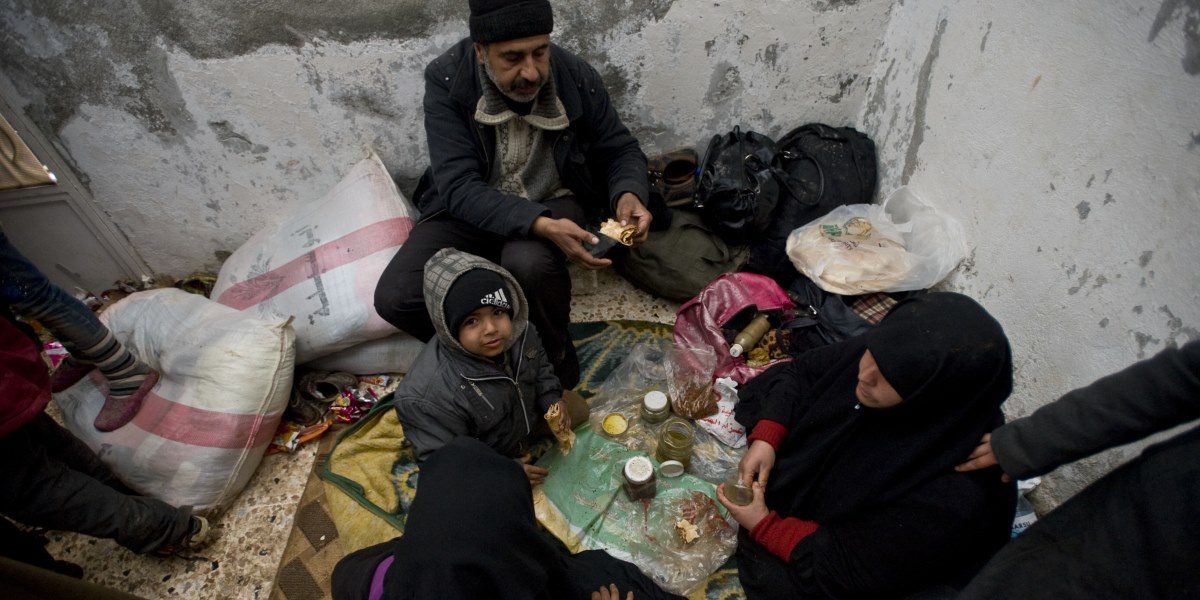
Forcing Syrians to Flee the Country is a Tactic of the Syrian Regime
Share
Since the beginning of the refugee crisis in the Syrian civil war, most astute observers of the conflict have said that the ultimate long-term solution for the Syrian refugee crisis is building peace and stability in the country to enable refugees to freely go back to their homes and continue their lives from the point when they left. The belated attempts by the international community to accept some refugees was only a bandage for the growing and deepening problem of Syrian refugees. In the absence of a feasible long-term solution it is unrealistic to expect the flow of refugees from the conflict to end.
Last week, we saw this reality in Syria once more when the intensifying Russian airstrikes in northern Syria started to generate another major wave of refugees coming to Turkey. Since the beginning of the crisis, there has been a correlation between any intensification of the crisis and the number of refugees fleeing to neighboring countries. Since the beginning of the airstrikes, the use of Scud missiles and chemical weapons, we have seen a huge number of Syrian civilians fearing the increasingly violent war machine of Bashar Assad's regime fleeing to adjacent countries. With the rise of DAESH, we saw another major wave, this time from Iraq as well as Syria. The most significant wave of refugees was from Kobani, which probably had one of the highest numbers in just a few days, and from Sinjar in northern Iraq. Later, with the People's Protection Units' (YPG) capture of Tal Abyad, another major flow of refugees started. Later, some human rights group reported that some of these people were forcefully evicted from their homes by YPG forces. In the most recent phase of the conflict with Russian airstrikes and their gradual intensification on opposition-held territories, we started to see another major wave of refugees.
Since the intensification of the attacks in the Turkmen Mountain region against the Turkmens there, observers of the refugee problem have pointed to the danger of the continuation of similar attacks in other parts of Syria, which could generate similar refugee problems. The international community mostly ignored these calls and warnings, and now we are facing another critical juncture in the crisis with increasing attacks on areas surrounding Aleppo. Last week, Turkish authorities indicated that at least 70,000 people fleeing heavy airstrikes on their towns and cities were walking toward the Turkish border. Some 20,000 of them have already gathered on the Turkish border. Considering the distance, the weather conditions and increasing attacks, these people face serious dangers. In a similar way, the Assad regime, with the support of the Russian air force, has been starving towns as a weapon through sieges in recent months. Last month, dozens of people in the town of Madaya died from starvation. Many observers warned that the use of this tactic could generate a serious humanitarian crisis. However, the reaction from the international community was insufficient to deter the regime from using similar tactics in other areas. As suspected, now the regime uses this tactic in various parts of Syria and uses the threat of starving Syrians to empty cities and towns.
The creation of this new crisis shows that the regime continues to use the tactic of emptying towns and cities to capture territory. From the beginning, the regime tried to scare and threaten civilians, and now with the use of starvation, various chemical agents, barrel bombs and the Russian air force, a critical point has been reached, and a majority of Syrians may find that leaving the country is the best and last course of action. This means that if the regime is not stopped from using this horrendous tactic - threatening its own citizens, we will face more refugees and internally displaced people in the coming months. It must be remembered that the regime used the most horrible tactic of starving people while preparing for the talks in Geneva, and the intensifying of airstrikes took place, while their representatives were making their case to the U.N. special envoy. This shows the sincerity of the Syrian regime with regard to a political solution and the outcome of the inaction of the international community. In the coming days and weeks, we need to be cautious about what the Syrian regime means concerning a solution, as the regime and its allies may think that emptying most of the country is a viable solution to win the war.
[Daily Sabah, February 8, 2016]
Tags »
Related Articles








